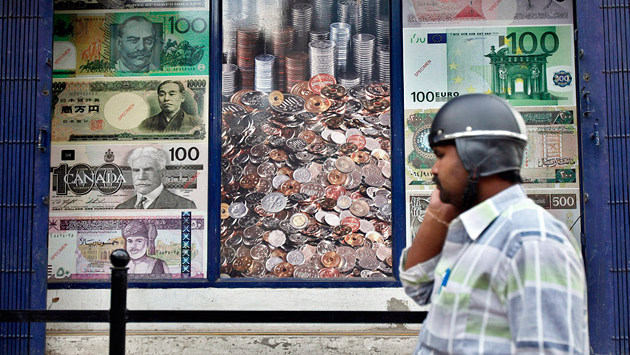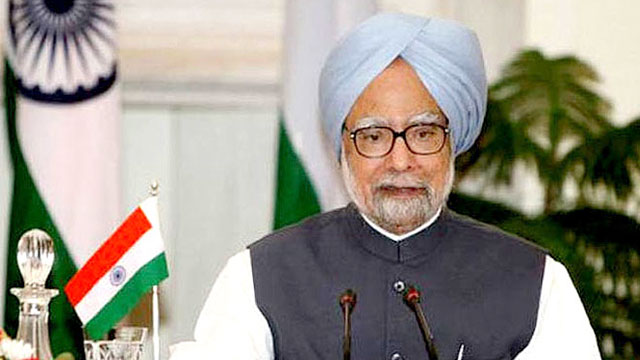High month-end demand from oil importers and private requirements of dollar pushed the partially-convertible Indian rupee to a new record low of 68.75 against the dollar
High month-end demand from oil importers and private requirements of dollar pushed the partially-convertible Indian rupee to a new record low of 68.75 against the dollar on Wednesday.
The slump at the inter-bank foreign exchange market here surpassed the previous low of 66.25 recorded Tuesday. However, the rupee recovered slightly to 67.79 around 2.55 p.m. after the central bank’s intervention.
The rupee had closed Tuesday at 66.25 — a depreciation of 2.36 percent from its Monday’s close of 64.72 against the dollar.
According to currency analysts, the growing demand for the US currency from importers and a lack of foreign investors’ interest in a weak economy is the main reason for the depreciation.
The high month-end demand from oil importers and private orders worth $300-$400 million in the start of the day’s trade also escalated the dollar demand.
“There are specific issues which are affecting the rupee; like the bad timing of introducing the National Food Security Bill and escalation in tensions in Syria with a possible US intervention and, thereafter, the fallout on the oil prices,” Anindya Banerjee, currency expert, Kotak Securities told IANS.
Concerns have been raised over the widening of the fiscal deficit as the lower house of parliament Monday passed the National Food Security Bill, whose implementation will cost nearly Rs.1.3 lakh crore ($20 billion).
Lack of confidence in the Indian economy has also undermined the rupee’s value. There are concerns over the soon to be released first quarter gross domestic product (GDP) numbers which are expected to be below expectations.
Industry body Associated Chambers of Commerce and Industry of India (Assocham) suggested the convening of a meeting of major economies to forge a joint strategy to face up to the unilateral actions of the Federal Reserve which is causing havoc in the global equity and to the currencies of emerging economies.
On Tuesday, Commerce Minister Anand Sharma said the government was looking at the option of currency-swap agreements with key trading partners.
Currently, India has currency swap agreements with Japan worth $15 billion and Bhutan of about $100 million. Others like China and South Korea too have shown interest in entering into such an agreement with India.
The precipitous decline in the rupee led to heavy selling in the early part of trade in equities markets. The benchmark index of the Indian equities markets fell by more than 400 points or more than two percent. However, the equities markets regained in the late hours of the trade by 0.04 percent or 7.65 points.
The 30-scrip sensitive index (Sensex) of the S&P Bombay Stock Exchange (BSE), which opened at 17,851.44 points, was trading at 17,975.73 points around 3.20 p.m., up 7.65 points or 0.04 percent from the previous day’s close at 17,968.08 points.
The Sensex touched a high of 18,101.84 points and a low of 17,448.71 points during trade so far. However, the wider 50-scrip Nifty of the National Stock Exchange (NSE) was 16.10 points or 0.30 percent down at 5,271.35 points.
-IANS





